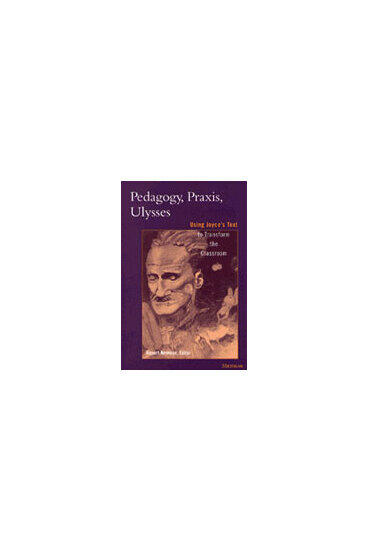Pedagogy, Praxis, Ulysses
Using Joyce's Text to Transform the Classroom
Ulysses as a touchstone for generating provacative ideas for innovation in teaching.
Description
Much theoretical debate has occurred about James Joyce's Ulysses as a model for reading. Critics often cite it as the ideal writerly text, where, according to Barthes, the reader becomes actively involved in producing meaning rather than a mere consumer of words. Post-structuralist, Marxist, and feminist theorists variously see the novel as the place to discover the infinite deferral of understanding, the polyphonic text that liberates the reader from narrow ideological meaning, or the work that undercuts prevalent psychoanalytical notions of language and offers new interpretive strategies. In many ways, Ulysses is a chameleon text, accommodating multiple interpretations while permitting infinite possibilities for discovery.
Pedagogy, Praxis, Ulysses approaches Joyce's novel not simply as a text to be examined, but as a touchstone to generate theoretical and practical ideas for innovation in teaching. The collection employs Ulysses as a springboard for thought- provoking questions about how we read, learn, and teach--and about how new, open-minded approaches to pedagogy can communicate to students the value of interpreting as a strategy of survival, and questioning as a vital technique for experiencing life.
Contributors to the volume are M. Keith Booker, Sheldon Brivic, Kevin Dettmar, Michael Patrick Gillespie, Roy Gottfried, Margaret Mills Harper, R. Brandon Kershner, Archie Loss, Patrick Lynch, Robert Newman, Margot Norris, Jörg Rademacher, Susan Shaw Sailer, Brian Schaffer, Carol Schloss, Gregory Ulmer, E. P. Walkiewicz, Craig Werner, and Jennifer Wicke.
"For anyone who cares about teaching Joyce--or teaching at all-- this volume is a rich, provocative, surprising, invigorating, and, above all, passionately argued collection. The essays are astonishingly different, despite their common focus on Ulysses, but what they all share is a sense of the classroom as a powerful forum for challenging received ideas." --Garry Leonard, University of Toronto, Scarborough
Robert Newman is Professor and Chair of the Department of English, University of South Carolina.

